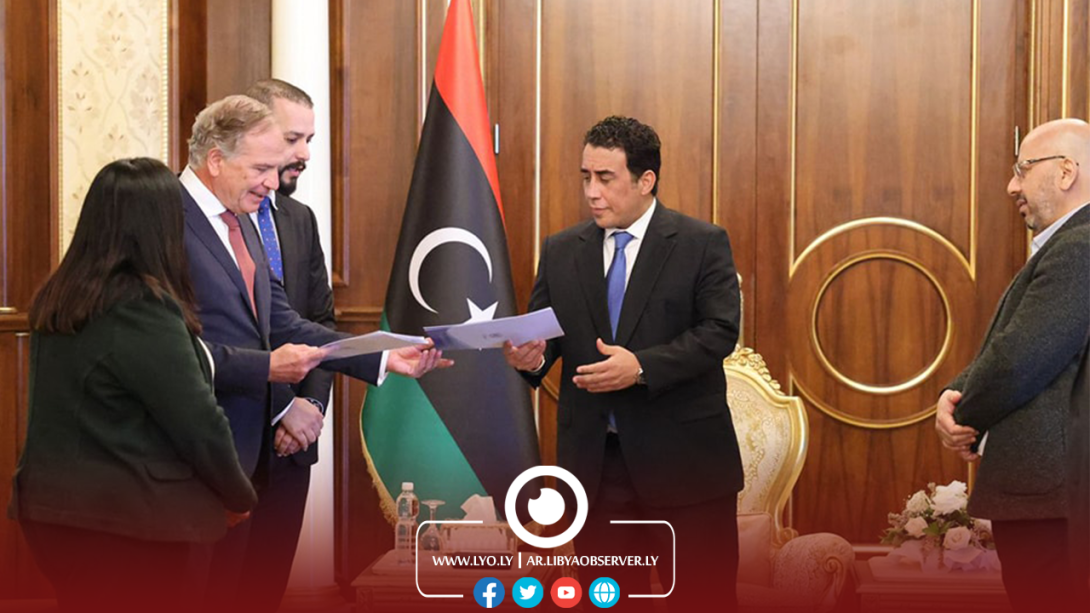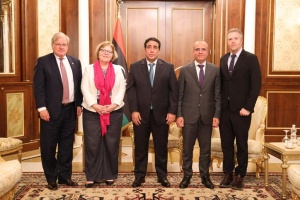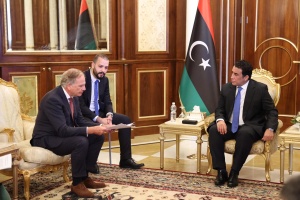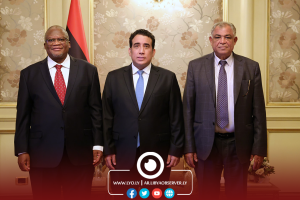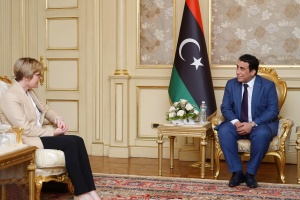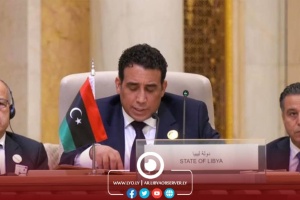The Head of the Presidential Council, Mohammed Menfi, received from the co-chairs of the Working Group on International Humanitarian Law and International Human Rights Law principles for human rights and recommendations based on consultations with more than 500 Libyan citizens.
The document included human rights issues, in addition to the measures required to protect gains and overcome obstacles, thus leading to the promotion of human rights in Libya, according to what was published by the United Nations Support Mission in Libya (UNSMIL).
Dialogue participants spoke out against impunity and stressed the need for the justice system to be reformed and strengthened with an emphasis on investigating and prosecuting the perpetrators of human rights abuses.
Participants in the series of dialogues conducted by the United Nations said that violations and abuses of human rights, exclusion and marginalization are among the causes of conflict and instability in Libya.
They raised concerns about the armed groups that have multiplied across Libya since the February Revolution, undermining human rights and the rule of law, and identified security sector reform as key to the country’s stability.
The document also highlighted the importance of ensuring fundamental rights, such as access to basic services, freedom of expression, assembly, and association, and political rights, including their right to vote and to political participation.
They also unanimously called for the launching of a comprehensive reform of the security sector, stressing that it is of great importance to organize the armed groups, dissolve what they called "militias" and establish a unified army.
The participants emphasized that freedom of expression, opinion, and assembly are not only basic rights, but are extremely important for elections, the political process, and reconciliation, stressing the need to lift arbitrary restrictions and to make efforts to address hate speech, which works to silence voices opposing the lack of civil rights, equality, injustice, violations and abuses of human rights.
They urged that the political rights of Libyans must be respected, recalling that the political crisis must end, with the necessity of guaranteeing their political rights through elections and agreement on a constitutional framework for elections, as well as providing support from the international community for Libyan-led elections.
Participants also stressed the need to stop violence against women and girls, including violence resulting from increased insecurity and so-called honor killings, and the increase in online harassment, hate speech and threats, and to ensure women's rights to participate in public and political life, including the political process and national reconciliation.

